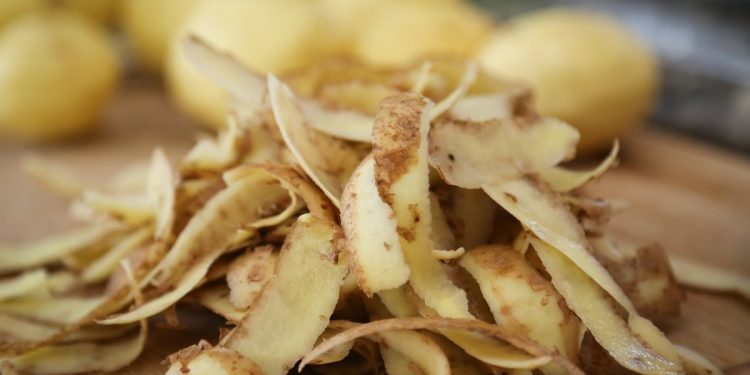#PotatoPeels#ProcessedFoodIndustry#SustainableFoodProduction#Environmental#Sustainability#Agricultural#Practices#Nutrition#FoodIngredients
According to a recent article published on Potato News Today, potato peels are being utilized in the processed food industry to create various food products such as potato flour, potato starch, and potato fiber. The article also highlights how the use of potato peels is not only beneficial for the environment, but also for the food industry, as it provides a cost-effective solution to reduce waste while producing high-quality food ingredients.
One study conducted by researchers from the University of Alberta in Canada found that potato peels are a rich source of antioxidants and dietary fiber, which can potentially reduce the risk of chronic diseases such as heart disease, diabetes, and certain types of cancer. Another study conducted by the International Potato Center (CIP) in Peru found that potato peels can be used to create biodegradable packaging materials, further emphasizing the versatile uses of this often overlooked resource.
The utilization of potato peels in the processed food industry has the potential to revolutionize the way we produce and consume food. By reducing waste and creating sustainable food ingredients, we can work towards a more environmentally friendly and economically feasible food system. It is crucial for farmers, agronomists, agricultural engineers, and farm owners to recognize the value of potato peels and work towards incorporating sustainable practices in their operations.
Potato peels are proving to be a valuable resource in the processed food industry. With their high nutritional value and versatile uses, potato peels have the potential to transform the way we produce and consume food. It is essential to prioritize sustainable practices in agriculture and food production, and the utilization of potato peels is a step towards achieving this goal.







